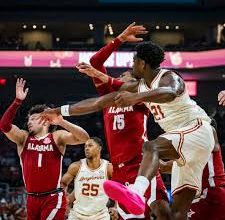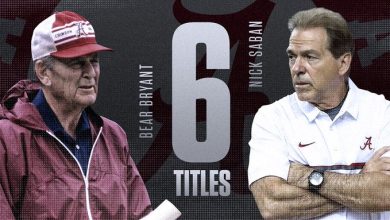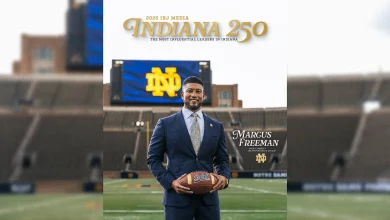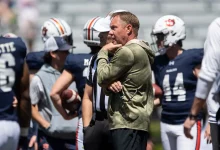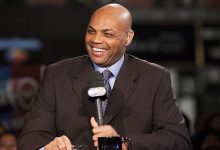The Ravens are finalizing an extension with offensive coordinator Todd Monken, solidifying his role for the upcoming seasons.
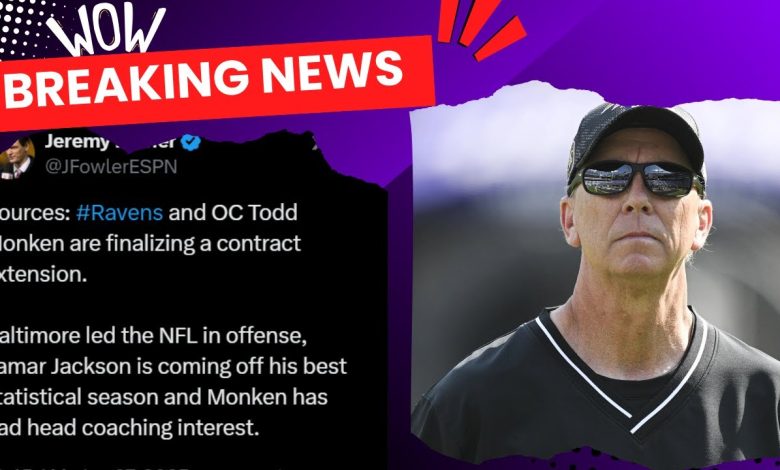
In the ever-changing world of the NFL, stability and continuity are often the keys to success. For a team like the Baltimore Ravens, known for its tough, physical style of play, the decision to solidify the leadership of their offensive coordinator, Todd Monken, for the foreseeable future is more than just a contractual extension. It’s a statement of intent. The Ravens are not only committed to building a dynamic offensive unit around quarterback Lamar Jackson but also to establishing an offensive identity that will allow them to compete for championships in an increasingly high-powered league.
Todd Monken’s arrival in Baltimore marked a pivotal moment in the evolution of the Ravens’ offense. Known for his diverse play-calling and ability to build explosive offenses, Monken was hired to revitalize a unit that had struggled with consistency in recent years. With the extension now in the works, the Ravens are signaling their belief that Monken is the right man to continue shaping the offense in the years ahead. This move also reinforces the idea that the Ravens, despite their historically strong defense and physical running game, recognize the need for an offense that can keep pace with the modern trends of the NFL—an offense that can both sustain drives and deliver big plays.
The Ravens’ Offensive Evolution
The Ravens have long been known for their defense and ground game. The franchise’s history is steeped in tough, physical play, with iconic figures like Ray Lewis and Ed Reed anchoring a defense that was both feared and respected across the league. On the offensive side, the team built its identity around a powerful running game, with legendary figures like Jamal Lewis, and more recently, Lamar Jackson, redefining the quarterback position as a dual-threat.
However, despite the Ravens’ long history of success, particularly under head coach John Harbaugh, there has always been a nagging question: can their offense keep up with the modern trends of the NFL? In an era where high-powered passing offenses have taken center stage, the Ravens’ traditional ground-and-pound approach, while still effective, had its limitations—especially in critical moments during postseason games. In recent seasons, the Ravens found themselves unable to compete with high-scoring offenses, particularly in the playoffs, where defensive struggles and a lack of offensive firepower were often exposed.
The hiring of Todd Monken in 2023 was a response to this problem. Monken, who had spent time as an offensive coordinator at multiple stops, including a successful stint at the University of Georgia, was brought in to give the Ravens’ offense a much-needed facelift. His reputation as a dynamic play-caller, capable of blending a pro-style passing attack with an aggressive run game, made him the ideal candidate to lead the charge in transforming the offense.
Monken’s success at Georgia, where he helped develop one of the most potent offenses in college football, was a clear indicator of his ability to modernize an offense and maximize talent. His ability to adapt to his personnel, whether it’s designing a scheme that takes advantage of an elite running back like Georgia’s Zamir White or integrating explosive passing plays, made him an exciting prospect for the Ravens. Monken’s offensive philosophy combined versatility with creativity—a perfect fit for a team that had the foundational pieces but needed the right direction to fully unlock its potential.
The Impact of Monken’s Offensive Philosophy
One of the immediate changes Monken implemented was a greater emphasis on the passing game. While the Ravens have always had a dynamic rushing attack with Jackson at the helm, Monken understood that in order to take the next step as a team, the offense had to be more balanced and less predictable. His play-calling and offensive scheming put a greater emphasis on spreading the field, utilizing more pre-snap motion, and integrating more sophisticated passing concepts to exploit defenses.
In his first season with the Ravens, Monken’s impact was evident. Jackson, who had already established himself as one of the NFL’s most dynamic quarterbacks, flourished under Monken’s system. The Ravens’ passing attack became more varied and unpredictable, with Jackson utilizing all of his receiving weapons, including the emerging star tight end Mark Andrews, wide receiver Zay Flowers, and the veteran presence of Odell Beckham Jr.
Monken’s ability to mix the run and pass, establishing a rhythm and flow to the offense, made the Ravens’ offense significantly more difficult to defend. He understood that while Jackson’s unique skill set was the engine that powered the offense, building a system that could stretch the field both vertically and horizontally was necessary for long-term success. This was especially true in an AFC that is stacked with high-flying offenses, and where teams like the Kansas City Chiefs, Buffalo Bills, and Cincinnati Bengals were routinely putting up astronomical point totals.
Another key aspect of Monken’s offense is his flexibility and adaptability. He has shown a clear willingness to make adjustments based on the defense he is facing and the strengths and weaknesses of his players. This ability to evolve, whether it’s utilizing a power-running scheme when the weather turns cold or opening up the passing game when a defense is weak against the air attack, is a hallmark of a great offensive coordinator. Monken’s ability to make adjustments within a game, as well as over the course of a season, has been crucial to the Ravens’ offensive development under his leadership.
The Quarterback Factor: Lamar Jackson’s Growth Under Monken
Perhaps the most significant beneficiary of Todd Monken’s offensive philosophy has been Lamar Jackson. As a former MVP and one of the most electrifying quarterbacks the league has ever seen, Jackson’s talent was never in question. However, for Jackson to take his game to the next level and fully develop as a quarterback, he needed an offensive system that could complement his skill set while also enhancing his passing accuracy, decision-making, and overall field awareness.
Monken’s system, which encourages a more diverse and dynamic passing attack, has provided Jackson with a framework in which to excel. Under Monken, Jackson has shown improvements in his passing mechanics and decision-making, with the offensive coordinator’s emphasis on timing, precision, and reading defenses allowing Jackson to make quicker and more accurate throws. Monken’s ability to design plays that put Jackson in favorable positions—whether it’s utilizing quick passes, deep shots, or plays that take advantage of Jackson’s ability to escape pressure—has been a game-changer.
The chemistry between Jackson and Monken has been noticeable on the field, with the quarterback looking more comfortable in the pocket and more confident in his passing game. The key to Jackson’s development is not only his ability to read defenses but also his trust in the system and in Monken’s ability to put him in situations where he can succeed. The offensive extension of Monken’s vision could ultimately unlock Jackson’s full potential as both a passer and a runner, making him an even more dangerous threat in the years to come.
The Bigger Picture: What the Extension Means for the Ravens
The news that the Ravens are finalizing an extension with Monken is a significant step toward securing the team’s offensive future. By locking in Monken for the long term, the Ravens are signaling their commitment to a balanced and potent offense that can complement their traditionally strong defense. This move also ensures that Monken can continue to build and develop his system, further incorporating his vision into the Ravens’ long-term strategy.
The timing of this extension is also noteworthy. The Ravens are coming off a season in which they made significant strides offensively, and they’re poised to be even more competitive in the coming seasons. With Jackson under center and an offense that now has a clear identity, the Ravens are setting themselves up for sustained success. The extension allows Monken to continue molding the offense without the uncertainty that often comes with coaching changes, enabling the team to fully capitalize on the talent on the roster.
Moreover, Monken’s ability to recruit and develop talent will be critical in the coming years. As the Ravens continue to evolve, they’ll need to find ways to enhance their receiving corps, develop young players, and stay ahead of the competition. Monken’s reputation as a developer of talent, particularly in the passing game, will play a crucial role in ensuring the Ravens remain competitive in an AFC that continues to get more explosive.



